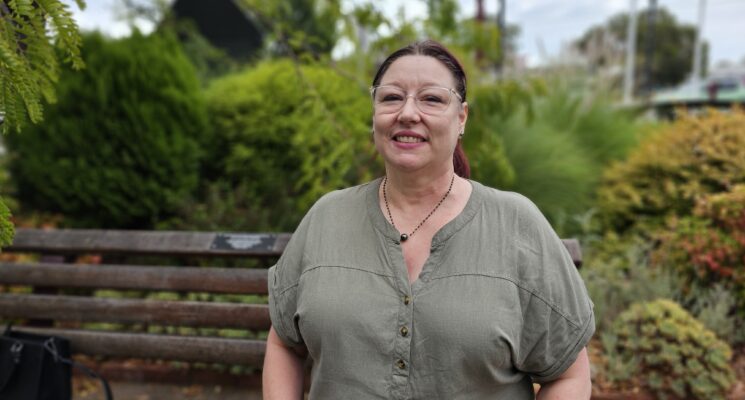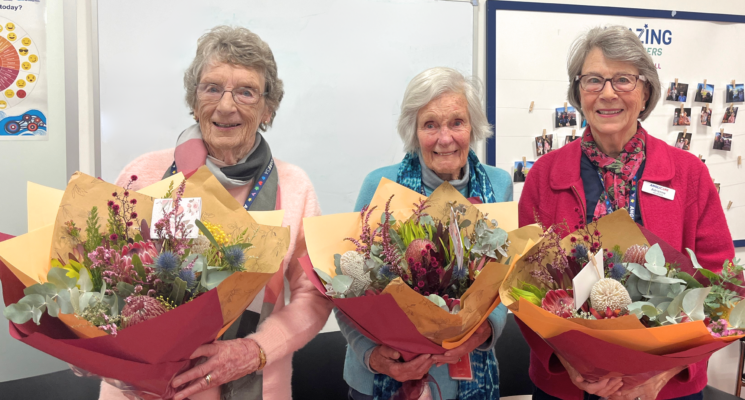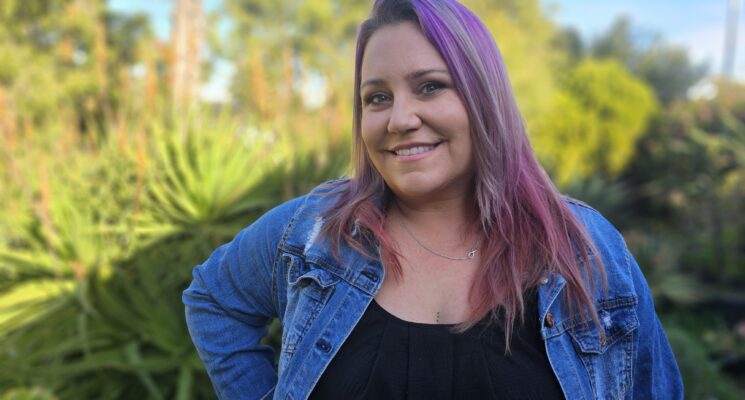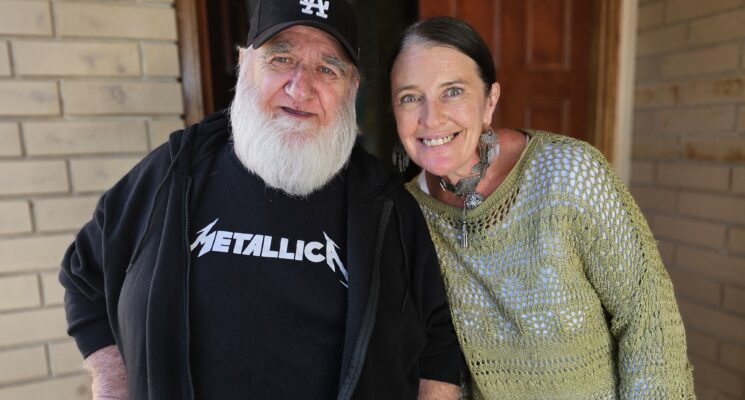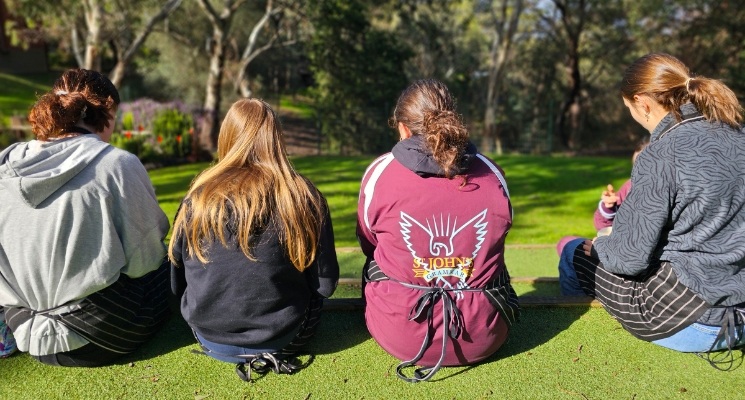
A new partnership between AnglicareSA’s Youth Services team and St John’s Grammar School in Belair is helping create a sense of connection while potentially uncovering the community services workforce of the future.
It was all about school holiday fun on the day, from whipping up a double batch of brownies, or having a kick with a couple of AFLW Crows stars, to arts, crafts, and games, as St John’s Grammar students led activities for 12 young people living in out-of-home care across Adelaide.
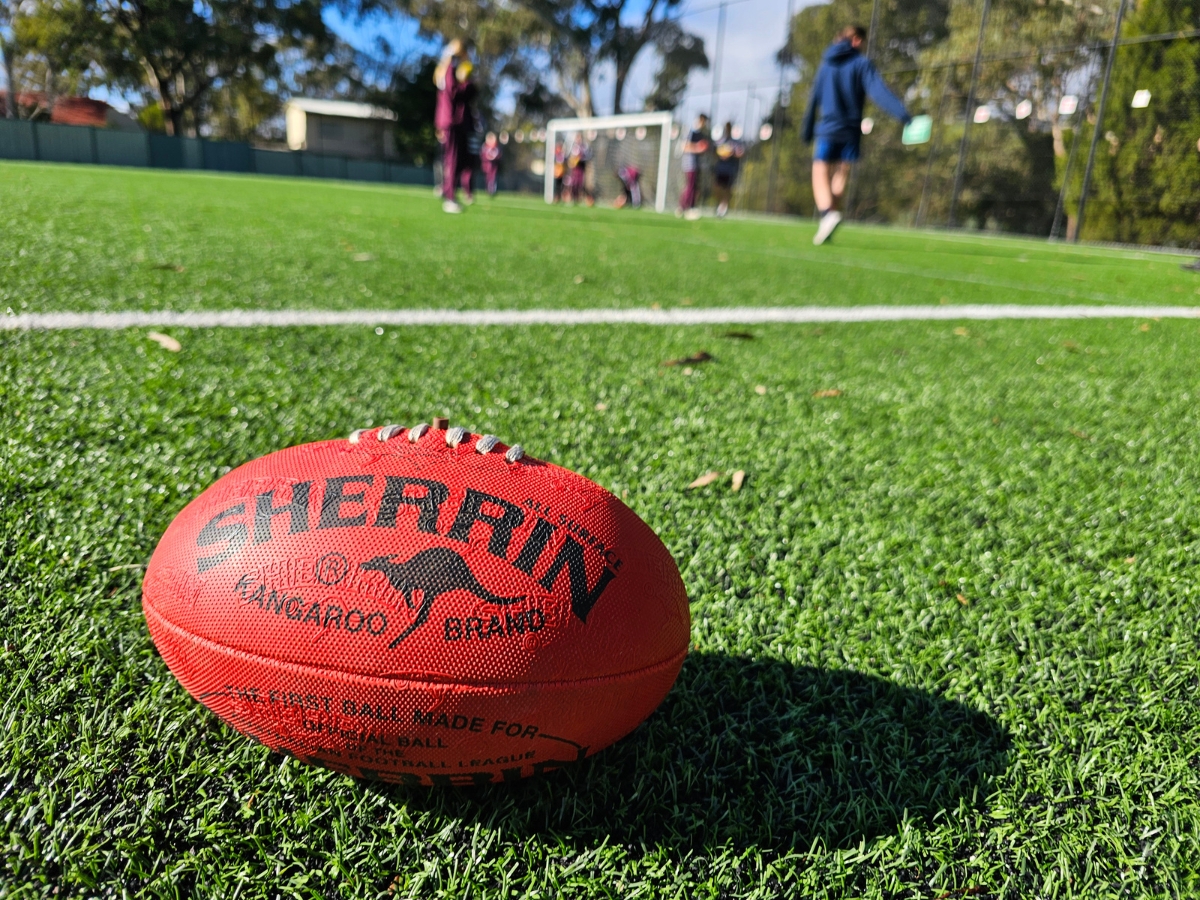
AnglicareSA Participation and Wellbeing Coordinator, Rebecca Walker, said the partnership between Youth Services and St John’s Grammar supporting children in out-of-home care was based on mutual aspirations.
“The school, through its Leader of Wellbeing Danielle Kemp, was looking for a service opportunity for their students which was meaningful and a way for them to feel like they were giving back to the community,” Rebecca said.
“At the same time, our team was looking for ways to provide a program for young people living in out-of-home care across Adelaide where they could come along and meet other young people who are there to support and mentor them.
“We also wanted them to be able to hang out and meet other kids who, like them, are living in out-of-home care through various agencies.
“We hear a lot from young people in care that they can feel isolated and alone within the school environment because they don’t know other young people in out-of-home care. This is an opportunity for them to connect with others and build a sense of community.”
Rebecca Walker, Participation and Wellbeing Coordinator, AnglicareSA
St John’s Grammar School Assistant Head of Senior School Brady Lloyd said the school believed in the importance of providing students with an opportunity to look beyond their own worlds and was thankful of the partnership with AnglicareSA.
“We have been able to work together to create a program for students in out-of-home care to build a feeling of connection while also having some holiday fun,” Brady said.
“For our students it’s terrific for them to interact with other young people and take on that leadership role of not only developing the program of activities but then leading and facilitating the sessions also.”
Brady Lloyd, Assistant Head of Senior School, St John’s Grammar School
Brady said more sessions had already been planned for the next school holidays and hoped more young people living in care would be able to benefit as the partnership with AnglicareSA grew into the future.
“We’d love for this to be the beginning of a really close relationship with AnglicareSA, not just through this program but hopefully in other contexts as well.
“Our students have loved hosting the day. This is the start of a terrific connection.”
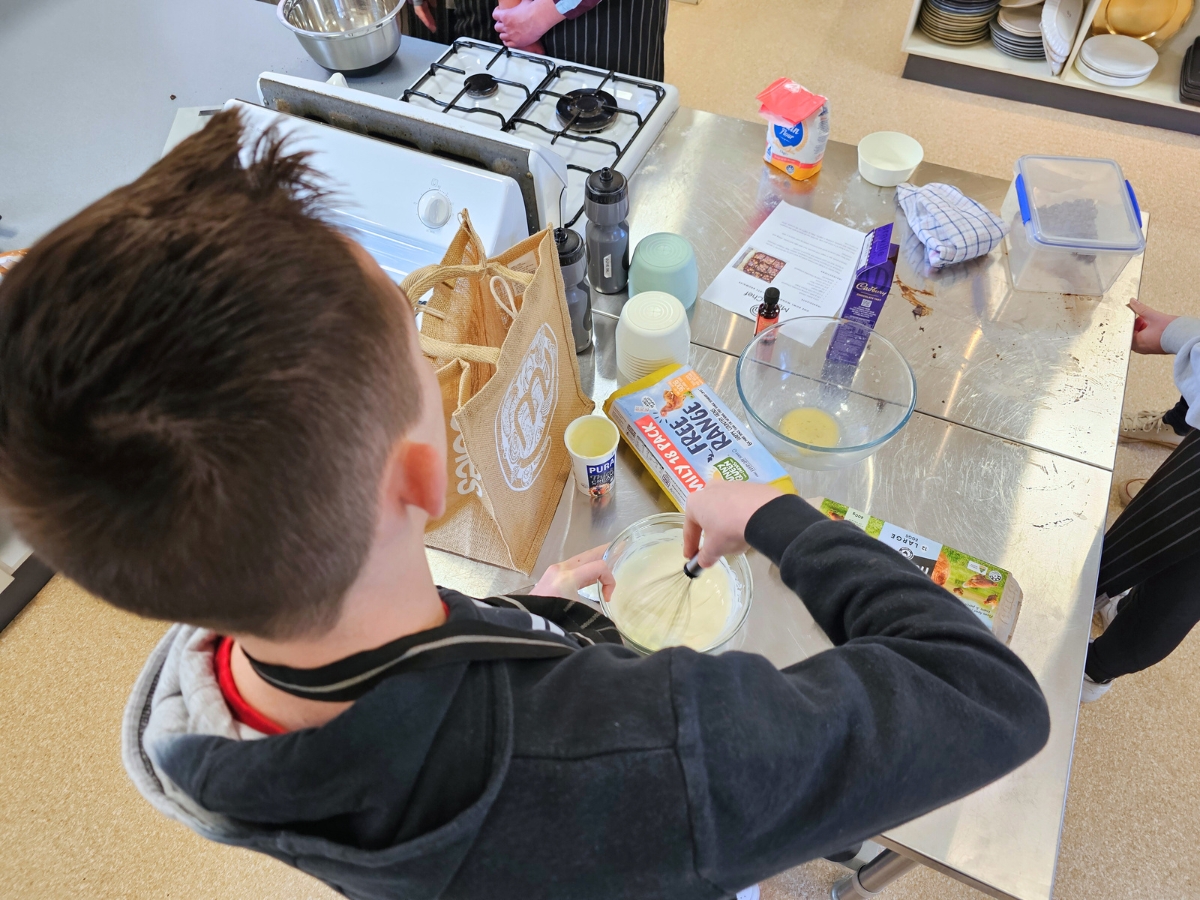
Being involved in the mentoring project was also a chance for students to gain exposure and understanding of more career options open to them in the community services sector, Rebecca said.
“Just like with our other programs we see the ripple effect of these kinds of experiences in terms of developing a greater understanding of the need in the community as well as possibly choosing different career paths,” she said.
“They may go down the pathway to something like becoming a social worker or youth worker just from the experience in volunteering in programs like this.”
